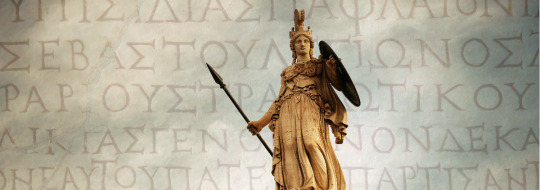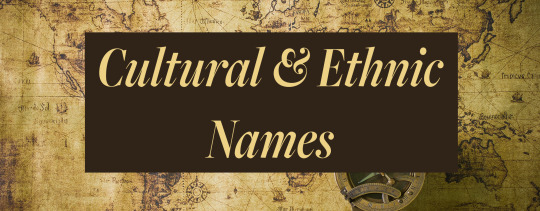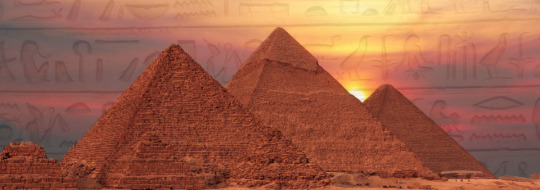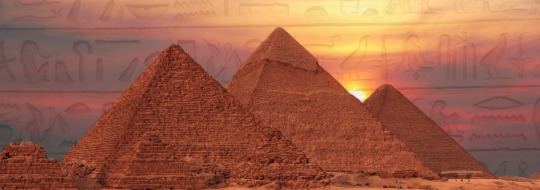Text
Music Inspired Names (GN)

Chanson ~ French, meaning "song."
Literally the word for "song" in French, this name is very musical in nature. In French music, "chanson" specifically refers to a song or piece of music with lyrics.
pronunciation: shawn-sawn
Coda ~ Italian, meaning "tail," "queue."
In music, a coda is a passage and notation that indicates the piece is coming to a close. It is usually noticeable as the final section in a piece.
pronunciation: coh-dah
Harper ~ British, meaning "harpist."
A harp is an elegant, stringed instrument with a gentle, resonant sound. It is played by sitting before it and plucking the strings with your fingers.
pronunciation: har-per
Jaren ~ Hebrew, meaning "to rejoice," "to sing."
This Hebrew name has Biblical origins and is usually used for when someone sings to God. It can also be spelled as "Jeren," or "Jarren."
pronunciation: jair-ehn
Lark ~ British, meaning "playful," "light-hearted," "songbird."
A lark is a small bird found all over the world. Its song and call is typically more elaborate than other birds. They are very melodious and extravagent to human ears.
pronunciation: lark
Lydia(n) ~ Greek, meaning "beautiful one," "noble one."
A Lydian scale is a scale of eight notes played up and down an octave. It is technically considered a major scale, which usually has happier tones and sounds.
pronunciation: lid-ee-ah, lid-ee-an
Lyric ~ Latin, meaning "lyre," "lyre-like."
Lyric poetry was originally poetry set to the playing of a lyre, but now, the term has evolved to mean the words of a piece of music meant to be sung.
pronunciation: leer-ih-k
Mele ~ Polynesian, meaning "song."
Sometimes more popular as a girl's name and sometimes more popular as a boy's name, this Polynesian name, nevertheless, means "song."
pronunciation: meh-leh
Morgan ~ Welsh, meaning "sea-song," "sea-born."
This Welsh name might not sound musical at first, but it still means "sea-song." Good for someone no matter the gender, this song is not as overtly musical as some others.
pronunciation: more-gan
Piper ~ British, meaning "pipe player."
Used as both a first name and as a term for someone who plays the pipes or flute, this is a very musical name.
pronunciation: pie-per

These name lists are intended to help writers and artists. There is no expectation of credit, and these lists aren't meant to be the end-all be-all lists of possible names. There are millions out there, and this is just for fun!
If you have a suggestion for a name list, or want to see something specific, feel free to submit a request!
And if you see something that is wrong (a pronunciation, a meaning, an origin), again, feel free to let me know!
#writeblr#writing reference#writing related#writing research#writing resources#name list#name ideas#name suggestions#character names#character name ideas#character name list#character name suggestions#gender neutral names#gn names#gender neutral name ideas#gender netural name suggestions#gender neutral name list#gn name list#gn name ideas#gn name suggestions#music names#musical names#music inspired#music inspired names
22 notes
·
View notes
Text
Music Inspired Names (masc)

Adagio ~ Italian, meaning "slowly."
Derived from the musical term "adagio" indicating the tempo, or speed, at which a piece should be played. Adagio indicates the tempo should be slow and with great expression.
pronunciation: ah-dah-jee-oh
Allegro ~ Italian, meaning "cheerful," "lively," "playful."
Derived from the musical term "allegro" indicating the tempo, or speed, at which a piece should be played. Allegro usually indicates a lively and fast tempo.
pronunciation: ah-leg-grah
Alto ~ Italian, meaning "high."
Alto is a term used to describe a pitch range in music. "Alto" is usually the lowest range of a female vocal range, and second-highest in general, but some instruments are tuned in the alto range as well, including the viola and alto trombone.
pronunciation: ahl-toe, al-toe
Amadeus ~ Latin, "loved by God," "love of God."
The most recognizable person with this name is the famous composer Wolfgang Amadeus Mozart, a musical genius and prolific composer in his life time. Born in Salzburg, Mozart is considered one of the greatest composers in Western classical music.
pronunciation: ah-mah-day-oos
Antonio ~ Italian, meaning "flower," "priceless."
Antonio was the given name of famous Italian composer Antonio Vivaldi. Vivaldi's most famous composition is titled "The Four Seasons," a series of violin concertos inspired by the seasons of the year.
pronunciation: an-toh-nee-oh
Apollo ~ Greek, meaning "to destroy," "redemption."
Apollo is a major deity in Greek and Roman mythology. On top of being the god of light, prophecy, and archery, he is also the god of music and the leader of the nine Muses.
pronunciation: ah-pahl-low
Bardo ~ Irish, meaning "minstrel," "singer-poet."
Related to the term "bard," this is a very musical name. Bards and minstrels were musically talented storytellers and poets in medieval Gaelic and British culture. Shakespeare is known as "The Bard of Avon."
pronunciation: bar-doe
Bragi ~ Norse, meaning "poem," "melody," "wise."
In Norse mythology, Bragi is the god of poetry renowned for his wisdom and fluency of speech. Bragi is especially associated with skaldic poetry, which often honored kings, and was more stylistically ornate than Eddic poetry.
pronunciation: brah-gee
Brio ~ Italian, meaning "vivacious."
Brio is a term usually shortened from "con brio," which is a musical direction term. It indicates that something should be played with vigor, with spirit, with vivaciousness.
pronunciation: bree-oh
Canto ~ Latin, Italian, meaning "song," "singing."
Derived from both the Latin and Italian words for songs and singing, canto was a form of medieval and modern long poetry. The canto form usually meant the poetry was meant to be sung by a minstrel to accompaniment rather than dictated.
pronunciation: cahn-toe
Carmine ~ Latin, meaning "song."
Originally a Latin name related to the word for "song," Carmine is also the name of a famous contemporary film composer, Carmine Coppola, who composed the score for the Godfather films.
pronunciation: car-mine
Chevalier ~ French, meaning "horseman," "rider."
A title of French noble distinction, Joseph Bologne, Chevalier de Saint-Georges was the first composer of African heritage to achieve acclaim and fame in Western classical music. He was also an accomplished dancer and fencer.
pronunciation: sheh-val-ee-ay, sheh-val-ee-er
Claude ~ French, meaning "enclosure."
Claude is the given name of the famous composer Claude Debussy. Despite his modest background, Debussy was admitted to the Conservatoire de Paris. He pushed the boundaries of classical music at the time, and his most famous composition is the piano piece "Clair du Lune."
pronunciation: claw-d
Dorian ~ Greek, meaning "gift," "of Doris."
Dorian is a term a few things in the world of music. Usually, "dorian" is a term used to describe a type of scale (a series of eight octave notes played one by one in a minor chord)
pronunciation: door-ee-en
Herod ~ Greek, meaning "song of the hero."
This name originates from Ancient Greece and literally means "song of the hero." For that reason, it makes "Herod" a very musical name indeed.
pronunciation: hair-odd
Linus ~ Greek, meaning "flax," "flax-colored."
In Greek mythology, Linus is the son of Apollo and the first leader of lyric song. In some myths, his musical talent rivaled that of his father, so Apollo killed him. In others, Linus is the music teacher of both Orpheus and Heracles.
pronunciation: lie-nus
Locrian ~ Greek, meaning "of Locris."
Locrian, like "dorian," is a term used in music theory for a type of musical scale (a series of eight notes played in an octave one by one. A locrian scale is more complicated than a dorian scale.
pronunciation: low-cree-en
Maestro ~ Italian, meaning "master," "teacher."
Similar to the musical direction term "maestroso" meaning to play a piece with majesty, "Maestro" is also an honorific given to a conductor or director.
pronunciation: mai-stroh
Mesto ~ Italian, meaning "sad," "pensive."
A music direction term, seeing the term "mesto" indicates that the piece should be played with a sad, mournful quality or tone.
pronunciation: mess-toe
Octavian ~ Latin, meaning "the eighth."
Octavia is a name taken from the Latin octave, meaning "eight." In music, an octave is a range of typically eight notes. The first and eighth note are always the same, with one higher than the other in pitch.
pronunciation: oct-ehve
Opus ~ Latin, meaning "work," "work of art."
In Western classical music, composers would often number their compositions and works. For example, the first movement of Beethoven's 5th Symphony is titled "Symphony No. 5 In C Minor, Op. 67 "Fate." This means this is Beethoven's 67th composition.
pronunciation: oh-pus
Orpheus ~ Greek, meaning "orphan," "best voice."
Orpheus was a Greek hero who helped Jason on his quest for the Golden Fleece. Following the quest, Orpheus journeyed to the Underworld to recover his love wife, Eurydice. Orpheus was an amazing musician.
pronunciation: or-phee-us
Reed ~ Old English, meaning "red."
In music, a reed is a mouthpiece with which certain instruments are played, including clarinets, oboes, bassoons, and saxophones. Reeds are usually made of grass cane or wood and come in different strengths.
pronunciation: reed
Vesper ~ Latin, meaning "evening."
In Western classical music, a "vesper" or "vespers" is an evening song or composition. A vesper is traditionally an evening prayer. The most famous "vespers" composition is "All-Night Vigil," a choral work by Sergei Rachmaninoff.
pronunciation: ves-per
Vox ~ Latin, meaning "voice."
Coming from the Latin word for "voice," this is very much a musical name, one for singers and orators in particular.
pronunciation: vox

These name lists are intended to help writers and artists. There is no expectation of credit, and these lists aren't meant to be the end-all be-all lists of possible names. There are millions out there, and this is just for fun!
If you have a suggestion for a name list, or want to see something specific, feel free to submit a request!
And if you see something that is wrong (a pronunciation, a meaning, an origin), again, feel free to let me know!
#writeblr#writing reference#writing resources#writing research#writing ideas#name list#name ideas#name suggestions#character name ideas#character names#character name list#character name suggestions#male names#male name list#male name ideas#male name suggestions#boy names#boy name list#boy name ideas#boy name suggestions#music names#musical names#music inspired#music inspired names
20 notes
·
View notes
Text
Music Inspired Names (fem)

Aida ~ Arabic, Italian, meaning "reward," "happy."
Aida is the name of a famous, tragic opera composed by Giuseppe Verdi. Set in Ancient Egypt, Aida is an Ethiopian princess who is captured and enslaved by the Egyptians. She and Radamès, an Egyptian military captain, fall in love.
pronunciation: ay-ee-da, aid-ah
Allegra ~ Italian, meaning "cheerful," "lively," "playful."
Derived from the musical term "allegro" indicating the tempo, or speed, at which a piece should be played. Allegro usually indicates a lively and fast tempo.
pronunciation: ah-leg-grah
Aria ~ Italian, meaning "air."
An aria is a piece of music written for a single voice or singer. Arias are most commonly associated with opera productions and refer to both male and female solos. Arias are usually part of a larger work and can be accompanied by instruments or sung without.
pronunciation: ah-ree-ah
Bell ~ Old English, meaning "to roar," "to make loud noise."
Most know this word as the name of an instrument. A bell is used in both music and in other parts of life. Bells are commonly used in Christian churches to signal the beginning of service, and bells are also known to come in many shapes, sizes, and tones.
pronunciation: bell
Cadence ~ Latin, meaning "a falling."
The term "cadence" is used, in Western music theory, to describe the end of a musical phrase in which a melody or harmony comes to a resolution. It always feels like closure, like a conclusion.
pronunciation: kay-dence
Calliope ~ Greek, meaning "beautiful-voiced."
Calliope, in Greek mythology, is one of the nine Muses; goddesses of the arts and music. Calliope was the leader of the Muses and ruled over epic poetry.
pronunciation: cah-lie-ah-pee
Carmen ~ Spanish, Latin, meaning "garden," "song."
Carmen is a French opera composed by Georges Bizet. Set in Spain, the story tells of a soldier, Don José, who abandons his post and sweetheart for the fearless, free-spirited, fiery, Romani girl Carmen.
pronunciation: car-men
Carol ~ French, English, meaning "circle dance," "joyful song."
A carol is a type of song that is usually festive and sometimes religious in nature. Originally, many carols were upbeat and easy to dance to.
pronunciation: care-ol
Cecilia ~ Latin, meaning "blind," also spelled as "Caecilia."
Cecilia is the Catholic patron saint of music. It is supposed that Cecilia was a Roman noble lady who was forced to marry despite her vow of virginity. At the wedding, Cecilia sang to God in her heart, and later, her husband Valerian promised to respect Cecilia's vow. Both she and her husband experienced Catholic martyrdom.
pronunciation: seh-see-lee-ah, kae-kil-ee-ah
Celeste ~ French, meaning "heavenly."
Sometimes called a "celesta," a celeste is a musical instrument similar to a glockenspiel and resembling an upright piano. More tinkling, soft, and bell-like in sound and tone than a piano, the most famous music piece using a celeste is Tchaikovsky's "Dance of the Sugar Plum Fairy."
pronunciation: seh-lest
Chantelle ~ French, meaning "singer."
Derived from the French verb "chanter," meaning "to sing," Chantelle is a wonderful name with a musical meaning. It can also be spelled as Chantel, and Chantal.
pronunciation: shawn-tell
Clio ~ Greek, meaning "to recount," "to celebrate."
Clio, in Greek mythology, is one of the Nine muses; goddesses of the arts and music. Clio is mainly the muse of history, but is also occasionally considered the muse of lyre playing.
pronunciation: clee-oh, cl-eye-oh
Demi ~ Italian, meaning "half."
In music, "demi" is rarely used on its own. In music theory, demi can sometimes be used to describe half of something. A demi-cadence (a half resolution), or a demisemiquaver note (half of a sixteenth note, so a thirty-second note).
pronunciation: deh-mee
Giselle ~ French, meaning "pledge."
Giselle is the name of a popular ballet. It is considered a masterwork in classical ballet, and is not only one of the most-performed, but most challenging productions in the world of ballet. It tells the tragic, romantic story of young Giselle and a disguised noble, Albrecht.
pronunciation: jih-zelle
Harmony ~ Greek, meaning "concord," "agreement," "joint."
Harmony is a huge concept and part of Western music, largely relating to the layering of complimentary notes and passages on top of a melody to create chords, textures, tonalities, and unique sounds in music. Harmonies can be both simple and complex. Sometimes the term "harmony" is used to refer to an ensemble line that is not the melody.
pronunciation: har-mon-ee
Hilde ~ German, meaning "ready for battle," "battle woman."
Derived from Hildegard, Hildegard von Bingen was a composer, writer, philosopher, visionary, and medical writer from Germany in the Middle Ages. She is one of the best-known composers of sacred Christian music in the world and one of the best-recorded as well.
pronunciation: hill-dah, hill-deh-gard
Kassia ~ Greek, Latin, meaning "hollow."
Sometimes seen as Cassia or Kassiani, Kassia was a Byzantine-Greek composer and poet who lived over 1,200 years ago. She is unique for being the sole female composer to exist in Byzantine liturgy with over 50 hymns and over 260 verses attributed to her.
pronunciation: kah-see-ah
Lauda ~ Italian, meaning "praise."
A lauda was the singular most important form of sacred music in the late Medieval to Renaissance times in Italy. The lauda is largely considered the precurser to the modern Christmas carol. Laude are characterized by their simple melodies sung in the vernacular, which at the time, was Latin.
pronunciation: lau-dah, lah-dah
Lyra ~ Greek, meaning "lyre."
Derived from "Lyre," Lyra is a feminine name related to the Ancient Greek stringed instrument. Lyres were usually played as accompaniment to epic poetry and story telling. The Ancient Greeks tended to strum the stings like a guitar, but other cultures plucked the strings like a harp.
pronunciation: lie-ra
Madrigal ~ Latin, meaning "song for unaccompanied voices."
This term has a couple meanings when it comes to music. The earlier type of madrigal was a Medieval, Italian music form composed for two voices. Later, during the Renaissance and Baroque periods, madrigals were secular compositions written for two to eight voices with no instrumental accompaniment.
pronunciation: mad-rih-gahl
Melody ~ Greek, meaning "singing," "chanting."
The term melody can describe the main tune of rhythms and pitches that make a song or piece. The foreground of a piece of music, the melody is arguably the most important element of composition.
pronunciation: mel-oh-dee
Meret ~ Egyptian, meaning "she who is beloved."
In Ancient Egyptian mythology, Meret is the goddess of music, dancing, singing, and joy. She helps maintain cosmic order through music. She is usually seen with a blue lotus flower or papyrus reed.
pronunciation: mehr-eht, mehr-iht
Musette ~ French, meaning "little bagpipe."
Derived from both "Muse," the name for the nine Ancient Greek goddess of music, literature, sciences, and the arts, as well as a type of French bagpipe, Musette is a great music-inspired name.
pronunciation: moo-zette, myoo-zette
Octavia ~ Latin, meaning "eighth."
Octavia is a name taken from the Latin octave, meaning "eight." In music, an octave is a range of typically eight notes. The first and eighth note are always the same, with one higher than the other in pitch.
pronunciation: oct-ehve
Scheherazade ~ Persian, meaning "exalted one," "noble lineage."
Known best as as the storyteller from the narrative A Thousand and One Nights, Scheherazade is also the name of an orchestral work composed by Nikolai Rimsky-Korsakov, which is acclaimed to have one of the most beautiful violin solos ever written. Scheherezade is not only a beautiful name, but also has nickname potential.
pronunciation: sheh-hair-eh-zahd-eh, sheh-hair-eh-zahd-ee, sheh-hair-eh-zahd
Sirena ~ Greek, meaning "enchanter."
In Ancient Greek mythology, sirens were humanlike beings who often took on the appearances of beautiful women. They lived in the seas, singing in alluring voices, and luring men to their deaths. In modern tales, sirens and mermaids are sometimes described as the same creature. Sirena is derived from "siren."
pronunciation: sir-een-ah
Symphonia ~ Greek, meaning "agreement."
"Symphonia" was sometimes used to describe various instruments, including bagpipes, drums, and a hurdy-gurdy. In more common knowledge, a "symphony" is an extended musical composition from Western classical music. Some of the most famous symphonies are Beethoven's Fifth, Mozart's 40th, and Dvořák's Ninth.
pronunciation: sim-phone-ee-ah
Thalia ~ Greek, meaning "the joyous," "the flourishing."
Thalia, in Greek mythology, is one of the Nine muses; goddesses of the arts and music. Thalia is the muse of comedy, or, stories that have happy endings. She's sometimes portrayed with a horn or trumpet in hand.
pronunciation: t-ah-lia, th-al-ia
Viola ~ Latin, Italian, meaning "violet," "of the arm."
The viola is a musical instrument slightly bigger than and lower in pitch than a violin. A traditional string quartet usually has two violins, a viola, and a cello. Overshadowed by the violin, violas are nevertheless beautiful instruments.
pronunciation: vie-oh-la, vee-oh-la

These name lists are intended to help writers and artists. There is no expectation of credit, and these lists aren't meant to be the end-all be-all lists of possible names. There are millions out there, and this is just for fun!
If you have a suggestion for a name list, or want to see something specific, feel free to submit a request!
And if you see something that is wrong (a pronunciation, a meaning, an origin), again, feel free to let me know!
#writeblr#writing reference#writing resources#writing related#writing research#name list#name ideas#name suggestions#character names#character name list#character name suggestions#character name ideas#female names#female name list#female name suggestions#female name ideas#girl names#girl name ideas#girl name list#girl name suggestions#musical names#music names#music inspired names#music inspired
39 notes
·
View notes
Text
Mythology Inspired Names: Ancient Greek (masc)

Achilles ~ Greek, meaning "grief," "distress," "he who has people in distress."
One of the most famous of all Greek heroes, Achilles famously gained invulnerability as a baby which aided him as an incredible warrior. Achilles slew Hector in the Trojan War as revenge for killing his lover, Patroclus, but Achilles' rage was so strong the gods intervened, and Achilles was killed by an arrow to his one weak spot, his heel.
pronunciation: ah-kill-eez
Adonis ~ Greek, meaning "lord."
Considered an ideal of male beauty in classical antiquity, Adonis achieved immortality after being killed by a wild boar in a hunting trip. His blood mingled with the tears of Aphrodite, who wept over him, from which a red flower grew. Sometimes an anemone flower, other times a red rose.
pronunciation: ah-don-is
Aion ~ Greek, potentially meaning "path."
In Greek mythology, Aion was a minor deity and the god of cyclical time; the passing of the year, the zodiac, the recurrance of eternal time. He was later associated with mystery religions.
pronunciation: ai-on (I-on)
Apollo ~ Greek, meaning "to destroy," "redemption."
Apollo is one of the twelve Olympians and is the god of archery, the sun, prophecy, music, healing, disease, light, and poetry. Twin to Artemis, Apollo is also well-known for experiencing tragedy in love.
pronunciation: ah-pahl-low
Ares ~ Greek, meaning "bane," "warlike," "ruin."
Another of the twelve Olympian gods, Ares is the god of war and courage. He is the patron of the Amazons, and is known for both incredible violence and savagery as well as valor and honor. His most famous lover is Aphrodite.
pronunciation: air-eez
Argo ~ Greek, meaning "swift."
Argo was the name of a ship from Greek mythology. It was the name of the ship Jason sailed on during his quest to retrive the Golden Fleece.
pronunciation: ar-go
Atlas ~ Greek, meaning "enduring," "to hold."
Atlas is a Titan associated with celestial spheres and the creation of astronomy. After the war between the gods and Titans, Atlas was punished and condemned to hold the weight of the sky for eternity.
pronunciation: at-les, at-lahs
Castor ~ Greek, meaning "beaver."
Castor and his twin, Pollux, are the half-brother children of Leda, a Spartan queen. Castor was born to a mortal father, while Zeus fathered the divine Pollux as a swan. Castor, along with Pollux, was transformed into a constellation named Gemini, meaning "twins."
pronunciation: kas-ter
Damon ~ Greek, meaning "one who tames."
Damon is a mortal man from Greek mythology who, along with Pythias, is shown to be an ideal of friendship. When Pythias is accused of plotting against the tyrannical king, Dionysus I, Pythias asked for the chance to get his affairs in order. Dionysus I agreed, as long as Damon stayed behind as a hostage. If Pythias didn't return, Damon would be killed in his stead. Pythias returned, and Dionysus I released them both, impressed by their bond.
pronunciation: day-men
Eros ~ Greek, meaning "desire," "love."
In some myths, Eros is a primordial god. In others, he is the son of Aphrodite and Ares. In all, he is the god of love, desire, lust, and sex. He is better known by his roman name "Cupid." He is usually depicted with wings and a bow and arrow.
pronunciation: air-ohs, air-os
Hades ~ Greek, meaning "the unseen one."
Never an Olympian, but an incredibly powerful, major god nonetheless, Hades is King of the Underworld and lord of the dead. He is usually depicted with a helm, a two-pronged spear, and his three-headed hound Cerberus.
pronunciation: hey-deez
Hector ~ Greek, meaning "to hold," "holding fast."
Hector was the strongest warrior in Troy and fought in and led armies in the Trojan War. Despite his skill in war, Hector was described as "peace-hearted." He was eventually slain by Achilles.
pronunciation: hek-ter
Helios ~ Greek, meaning "sun," "warming."
In the Ancient Greek faith, Helios is the original god of the sun and brother to Selene, goddess of the moon. He is largely identified with, and later seemingly replaced with Apollo. His Roman counterpart is Sol.
pronunciation: hee-lee-ohs, hee-lee-os
Hermes ~ Greek, meaning "stone heap."
Best known as the herald and messenger of the gods, Hermes is one of the twelve Olympians. He is also the god of travelers, merchants, thieves, messengers, mischief, athletes, and speed.
pronunciation: her-meez
Homer ~ Greek, meaning "security."
The name of the famous Greek poet who credited as the author of both The Iliad and The Odyssey, which tell of the Trojan War and the ten-year journey of Odysseus back to his home in Ithaca after the fall of Troy.
pronunciation: ho-mer
Hyacinthus ~ Greek, meaning "hyacinth."
Hyacinthus was the son of the muse Clio. He was gentle and clever and loved by both Apollo and the god of the west wind, Zephyrus, who accidentally killed Hyacinthus out of jealousy. Apollo wept for him and created a flower to memorialize his lost love.
pronunciation: hi-ah-sin-this, hi-ah-sin-thus
Icarus ~ Greek, meaning "follower."
Icarus is best known for his death. Icarus was the son of Daedalus, a master craftsman and architect of the Labyrinth, in which they both had been trapped by King Minos. To escape, they both strapped wings made from feathers and wax to themselves. They escaped, but Icarus flew too high, and the wax melted in the heat of the sun, resulting in Icarus' fall and death.
pronunciation: ih-cah-ris
Jason ~ Greek, meaning "healer."
Descended from Hermes, Jason was the leader of the Argonauts and a hero famous for finding the Golden Fleece. Originally married to Medea, Jason later left her, losing the favor of the goddess Hera. Jason's successes would eventually lead to the establishment of Rome.
pronunciation: jay-sen
Leander ~ Greek, meaning "lion man."
Leander was a mortal man from Abydos who fell for Hero, a priestess of Aphrodite, from across the strait. Every night, Leander would swim across the strait to be with her, and Hero would illuminate the top of her tower so he knew the one. One winter, a wind blew out the light, and he died. Hero threw herself off the tower to join him.
pronunciation: lee-an-der
Minos ~ Greek, meaning "king."
The King of Crete and a prideful man, Minos was the son of Zeus. After his wife gave birth to a man-bull hybrid, Minos had the Labyrinth built in which he could hide the Minotaur. Every nine years he sent seven boys and seven girls into it to be eaten by the monster. He became a judge of the dead in the Underworld after his death.
pronunciation: mine-ohs
Notus ~ Greek, meaning "south."
Notus is the god of the southern wind. Largely associated with heat, but also the coming of rain and mist, his brothers are Boreas, Zephyrus, and Eurus.
pronunciation: no-tus, no-tos
Orion ~ Greek, "rising in the sky," "dawning."
In Greek mythology, Orion was a great, giant hunter who earned the favor of Artemis. In some myths, he is killed by Artemis as well. In others, he is killed by a giant scorpion. Either way, his story ends in death and he is transformed into a constellation.
pronunciation: oh-rye-en
Orpheus ~ Greek, meaning "orphan," "best voice."
Orpheus was a Greek hero who helped Jason on his quest for the Golden Fleece. Following the quest, Orpheus journeyed to the Underworld to recover his love wife, Eurydice. Orpheus was an amazing musician.
pronunciation: or-phee-us
Perseus ~ Greek, meaning "to destroy"
The Greek hero Perseus is most famous for his defeat of the gorgon Medusa, by decapitating her. Also famous for slaying the sea monster Cetus, Perseus was the son of Zeus and would go on to establish Mycenae.
pronunciation: per-see-us
Pollux ~ Greek, meaning "very sweet."
Pollux was born to the Spartan queen Leda and Zeus disguised as a swan. His half-brother and twin Castor was born mortal, while Pollux was born divine. Pollux asked Zeus to share his immortality with Castor after he was fatally wounded, and the two were transformed into the Gemini constellation.
pronunciation: pah-lux
Prometheus ~ Greek, meaning "forethought."
The myth of Prometheus describes him as the gifter of fire. Despite orders from Zeus, Prometheus gave the gift of fire to humanity and is the father of technology, civilization, and knowledge. Zeus punished him to be bound to a rock, and every day an eagle would peck out and eat his liver.
pronunciation: pro-mee-thee-us
Proteus ~ Greek, meaning "first," "firstborn," "versatile."
Dubbed the "Old Man of the Sea" by the poet Homer, Proteus was an elusive and prophetic sea god. Proteus would only answer the questions of those who managed to capture him.
pronunciation: pro-tee-us
Styx ~ Greek, meaning "shuddering."
Styx is the name of one of the rivers in the Underworld. To cross it is to cross into the Underworld. Styx is also the name upon which the gods swear their most solemn oaths. Styx is gender-neutral.
pronunciation: stix
Theseus ~ Greek, meaning "to set," "institution."
A great hero, Theseus was also a king of Athens. Most well-known for killing the Minotaur, Theseus married the Cretan princess Phaedra after abandoning Ariadne.
pronunciation: thee-see-us
Titan ~ Greek, meaning "defender."
The Titans were a generation of divine beings born to Gaia and Uranus, the primordial deities of earth and sky. Predecessors to the gods, the most famous Titan was the trecherous Kronos, lord of time.
pronunciation: tie-ten
Triton ~ Greek, meaning "sea god."
Triton was the divine son of the Olympian Poseidon and his queen Amphitrite. Largely functioning as his father's messenger, Triton is usually depicted as a merman.
pronunciation: try-ton
Troy ~ Greek, meaning "water," "soldier."
Troy was a great city located in modern-day Turkey and the site of the mythological Trojan War, fought between the Greek forces under Agamemnon of Mycenae and the Trojan forces under Priam of Troy. The Greek gods were also divided during the war.
pronunciation: troi
Typhon ~ Greek, meaning "child of Titans."
One of the most deadly, dangerous monsters in all Greek mythology, Typhon was a giant who attempted to overthrow Zeus and the gods. Many of Greek mythologies monsters were born to him and his wife Echidna.
pronunciation: tie-phon
Zeus ~ Greek, meaning "sky father."
Lord of the skies and king of the gods, Zeus is the chief of the Olympians. His wife is Hera and his brothers are Poseidon and Hades. Zeus is the father of many other Olympians and gods, as well as some of the most famous Greek heroes, including Perseus and Heracles.
pronunciation: zoos
Zephyrus ~ Greek, meaning "westerly wind."
Zephryus is one of the four wind gods and lord of the western wind. Known for being gentle and bringing about the flowers of springtime, Zephyrus fell in love with Hyacinthus and accidentally killed him out of jealousy when Hyacinthus spent more time with Apollo.
pronunciation: zeh-ph-er-us

These name lists are intended to help writers and artists. There is no expectation of credit, and these lists aren't meant to be the end-all be-all lists of possible names. There are millions out there, and this is just for fun!
If you have a suggestion for a name list, or want to see something specific, feel free to submit a request!
And if you see something that is wrong (a pronunciation, a meaning, an origin), again, feel free to let me know!
#writeblr#writing reference#writing resources#writing related#writing research#name list#name ideas#name suggestions#character names#character name list#character name ideas#character name suggestions#male names#male name list#male name ideas#male name suggestions#boy names#boy name ideas#boy name list#boy name suggestions#greek mythology#ancient greek mythology#ancient greece#ancient greek names#ancient greek influence#ancient greek inspired
52 notes
·
View notes
Text
Mythology Inspired Names: Ancient Greek (fem)

Andromeda ~ Greek, meaning "mindful," "mindful of her husband."
Andromeda was the princess of Aethiopia who suffered Poseidon's wrath after her mother insulted the Nereids. The Greek hero Perseus rescued Andromeda and married her.
pronunciation: an-draw-med-ah
Ariadne ~ Greek, meaning "most holy."
Ariadne was the daughter of King Minos of Crete and helped the hero Theseus escape the Minotaur by providing him a string with which he navigated the Labyrinth. Ariadne married Dionysus after Theseus abandoned her. She is now the immortal goddess of labyrinths and paths.
pronunciation: Ar-ee-ahd-ney
Artemis ~ Greek, meaning "safe," "stable," "great," "the shooter."
Artemis is the Greek goddess of the hunt, the wilderness, wild animals, the moon, forests, and chastity. An Olympian goddess as well as the twin of Apollo, Artemis spends most of her time with her faithful hunters.
pronunciation: ar-teh-miss
Asteria ~ Greek, meaning "of the stars," "starry one."
Asteria was a Titaness who helped shelter her sister Leto when she went into labor with twins, Artemis and Apollo. Asteria defied Hera's orders by sheltering Leto, allowing the Olympian twins to be born. Asteria was also the mother of Hecate.
pronunciation: ah-steer-ee-ah, ah-steh-ree-ah
Athena ~ Greek, meaning "mind," "of Athens."
Athena was the Olympian Greek goddess of wisdom, war, weaving, and crafts who sprung from the mind of Zeus fully formed. Her symbol is an owl and she is the patron deity of the city of Athens.
pronunciation: ah-thee-nah
Aura ~ Greek, meaning "breeze."
Aura is the name of the goddess of the breeze, as well as the proper name for a type of wind nymph. Aurae are often confused with ghosts, as their bodies are composed of fog, but are generally gentle beings.
pronunciation: au-ra
Calliope ~ Greek, meaning "beautiful-voiced."
Calliope is one of the nine Muses, and the muse of epic poetry. She is considered the wisest and chief of all Muses. She and her sisters are the daughters of Zeus and the followers of Apollo. The Greek hero Orpheus is her son.
pronunciation: cah-lie-ah-pee
Calypso ~ Greek, meaning "she who conceals."
A Titaness in some myths, a nymph in others, Calypso was the daughter of the Titan Atlas. Using her enchanted singing, Calypso trapped Odysseus on her island home Ogygia for seven years. In some stories, Calypso herself is cursed to never be able to leave.
pronunciation: Cah-lip-soh
Cassandra ~ Greek, meaning "shining," "shining upon man."
Cassandra was a Trojan priestess and princess with whom Apollo gifted the ability of prophecy. However, after she broke her promise to marry him, Apollo cursed her to where no one would ever believe her prophecies.
pronunciation: cah-sand-drah
Circe ~ Greek, meaning "bird."
Circe was an incredibly powerful enchantress in Greek mythology known for transforming her enemies, and men, into animals. Odysseus and his crew encountered her.
pronunciation: ser-see, keer-kah
Clio ~ Greek, meaning "to recount," "to celebrate."
Clio is one of the nine Muses and the muse of history. Often referred to as "The Proclaimer," Clio is usually depicted with a book, an open scroll, or a set of tablets. Her son is the hero Hyacinthus.
pronunciation: Clee-oh, cl-eye-oh
Daphne ~ Greek, meaning "laurel."
Daphne was a naiad, a water nymph, from Greek mythology. Daphne came under the attentions of Apollo after Eros cursed him out of anger, a curse that would make Apollo fall in love with Daphne while she would only ever run away. Apollo chased after her, and Daphne prayed for help. Just before he caught her, Daphne was transformed into a laurel tree.
pronunciation: daff-nee
Demeter ~ Greek, meaning "earth mother."
Demeter is the Olympian goddess of agriculture, grain, and the harvest. She is also the mother of Persephone and is usually depicted with a cornucopia.
pronunciation: dem-ee-ter
Echo ~ Greek, meaning "echo," "sound."
Echo was a mountain nymph famous for falling in love with Narcissus, a man who fell in love with his own reflection. Echo was cursed by Hera to only be able to repeat the last words spoken to her. Unable to tell him how she felt, she watched him die before dying herself.
pronunciation: eh-ko
Eirene ~ Greek, meaning "peace."
In Greek mythology, Eirene is the goddess and personification of peace. The daughter of Zeus, her sisters are the goddesses of justice and law.
pronunciation: eye-reen-ee, eye-reen
Electra ~ Greek, meaning "amber."
Electra was the daughter of Agamemnon and Clytemnestra, king and queen of Mycenae. She helped her brother Orestes murder their mother in revenge for their father's death.
pronounced: el-lec-tra, il-lec-tra
Eris ~ Greek, meaning "strife."
As the goddess of strife, discord, and chaos, Eris existed more as a concept and personification than a true goddess in Ancient Greece. It was her golden apple led to the Judgement of Paris, and then, the Trojan War.
pronunciation: air-iss, ear-iss
Gaia ~ Greek, meaning "land," "earth," also spelled as "Gaea."
Gaia, in Greek mythology, is the primordial goddess of the earth. She is the mother of all life, including the Titans, the Cyclopes, the Giants, and many other monsters. Gaia has been depicted as both ruthless and benevolent.
pronunciation: gay-uh, gi-uh
Hecate ~ Greek, meaning unknown, also spelled "Hekate."
Despite her unknown origins, Hecate is well known in Greek mythology as the goddess of magic, crossroads, transitions, necromancy, and ghosts. She was also worshipped as a protector of the household.
pronunciation: heh-kah-tee
Helen ~ Greek, exact meaning unknown, also seen as "Helene," "Helena."
Helen of Troy was thought to be the most beautiful woman in the world. Daughter of Zeus, Helen was originally married to Menelaus before either eloping with or being kidnapped by Paris, which caused the Trojan War.
pronunciation: hel-en
Hemera ~ Greek, meaning "day."
Despite being the daughter of Erebus, god of darkness, and Nyx, goddess of the night, Hemera is the goddess of the day. She was a fairly minor deity in the Ancient Greek faith, and her Roman counterpart is Dies.
pronunciation: heh-mair-uh
Hera ~ Greek, meaning "beloved."
Hera, Olympian and wife to Zeus, was the Queen of the Gods and goddess of marriage, family, and women. Hera is the protector of women in childbirth, but is also known for her violently jealous nature. Her symbol is the peacock.
pronunciation: hair-uh, hear-uh
Hestia ~ Greek, meaning "hearth," "fireplace," "alter."
Originally the eldest of the Olympian gods, Hestia humbly decided to step down for Dionysus. Hestia is goddess of the hearth, the home, and domesticity. Hestia is a virgin goddess, her oath so strong even Aphrodite holds no power over her.
pronunciation: hes-tee-ah, hes-chia
Iris ~ Greek, meaning "halo of the moon," "rainbow."
Iris is a messenger of the gods as well as the goddess of the rainbow. She is usually depicted with wings and is often associated with Hera. With her rainbow association, she is also considered a minor sea and sky goddess.
pronunciation: eye-ris
Maia ~ Greek, meaning "great," "mother."
Maia, in Greek mythology, is a nurturing figure who is the mother of Hermes by Zeus. One of the Pleiades, Maia and her sisters are heavily associated with Artemis, and were immortalized by Zeus as constellations in the night sky.
pronunciation: may-uh, my-uh
Medea ~ Greek, meaning "planner," "schemer."
Medea was the princess of Colchis and a sorceress. She helped the hero Jason on his quest to find the Golden Fleece. After Jason abandons her, Medea kills their children out of revenge. Even before Jason's betrayal, Medea is described as poweful, but spiteful.
pronunciation: med-ee-ah
Merope ~ Greek, meaning "with sparkling face," "bee-eater bird."
Merope was one of the seven Pleiades. Not considered goddesses, but rather, nymphs, Merope and her sisters were turned into a constellation to escape the attentions of the hunter Orion. Merope is the dimmest star due to her marrying a mortal man, Sisyphus.
pronunciation: mer-oh-pee
Moirai ~ Greek, meaning "destinies."
Also known as The Fates, the Moirai were the three sisters Clotho, Lachesis, and Atropos, who spun, measured, and cut the thread of fate. They enforce the laws of the universe and ensure every being, mortal or divine, lives out their destiny.
pronunciation: m-oi-r-eye, m-oi-rai
Nyx ~ Greek, meaning "night."
Goddess of the night, Nyx is a primordial deity so powerful even Zeus fears to displease her. Her offspring are generally associated with negative forces, including doom, destruction, death, distress, and retribution.
pronunciation: niks
Pandora ~ Greek, meaning "gift," "all-giving."
In Greek mythology, Pandora is the first mortal woman, created by Hephaestus out of clay. A curious personality, Pandora opened a sealed pithos (jar), which released evils like disease and sorrow into the world. All but Elpis, the spirit of Hope were released. And thus, Hope remained with humanity.
pronunciation: pan-door-uh
Penelope ~ Greek, meaning "bird," "weaver."
Penelope was the queen of Ithaca and the faithful wife of Odysseus. In her husband's absence, Penelope had over one hundred men vie for her attention, but remained faithful and often devised clever tricks to delay a forced choice.
pronunciation: pah-nel-ah-pee, peh-nel-oh-pee
Persephone ~ Greek, meaning "bringer of destruction."
Originally named Kore (meaning "maiden"), Persephone is the goddess of springtime and Queen of the Underworld. Born to Demeter and Zeus, some versions of the myth depict her as having been kidnapped by Hades. Other versions show Persephone willingly wandering into the Underworld.
pronunciation: per-seph-oh-nee
Rhea ~ Greek, meaning "earth," "flowing."
Rhea is the wife of the Titan Kronos and mother of Hestia, Demeter, Hera, Hades, Poseidon, and Zeus. Rhea is best known for tricking her husband Kronos when he tried to eat his youngest son. Rhea his Zeus away and when he grew, Zeus defeated his father.
pronunciation: rye-ah, ree-ah
Selene ~ Greek, meaning "light," "brightness," "gleam."
In the Ancient Greek faith, Selene is the original goddess of the moon and sister to Helios, the original sun god. She is largely identified with, and later seemingly replaced by Artemis. Her Roman counterpart is Luna.
pronunciation: sel-ee-nee, sel-een
Sibyl ~ Greek, meaning "divine counsel."
The sibyls were the name of oracles in Ancient Greece. Highly respected, the most famous oracle was the sibyl at Delphi. Originally, there was only one sibyl, and then more were appointed in different cities over time.
pronunciation: sib-uhl
Thalia ~ Greek, meaning "the joyous," "the flourishing."
Thalia was one of the nine Muses, and the muse of comedy. Comedies in the ancient tradition were stories with happy endings, and Thalia is sometimes depicted with a comic theatre mask.
pronunciation: t-ah-lia, th-al-ia.

These name lists are intended to help writers and artists. There is no expectation of credit, and these lists aren't meant to be the end-all be-all lists of possible names. There are millions out there, and this is just for fun!
If you have a suggestion for a name list, or want to see something specific, feel free to submit a request!
And if you see something that is wrong (a pronunciation, a meaning, an origin), again, feel free to let me know!
#writeblr#writing reference#writing resources#writing research#writing related#name list#name suggestions#name ideas#character names#character name list#character name ideas#character name suggestions#female names#female name list#female name ideas#female name suggestions#girl names#girl name list#girl name suggestions#girl name ideas#greek mythology#ancient greek mythology#ancient greece#ancient greek names#ancient greek influence#ancient greek inspired
19 notes
·
View notes
Text
Masterlist

Are you a writer? Do you have a character knocking around in your head with nothing to call them as you yell for them to shut up cause it's 3am and you need to sleep?
Are the Vibes™️ there with no specifics to accompany it?
Are you a writer who's tired of browsing baby name sites and being asked for an email address or being bombarded with ads for car seats and breast pumps?
Are you a DM who's sick and tired of your players making fun of your NPCs names à la Matt Mercer?
Are you an artist who knows you'll get more questions about the background figure than the focal point and need something quick to name them?
This blog is for you!
Please be patient as I construct my intitial lists and add it to this masterlist. Thank you!
If you see a mistake in a list, feel free to point it out! If you see a list that you feel is incomplete, go ahead and let me know! If you have an idea for a list, submit a request!
This blog is run by an anxious, overcaffeinated fanfiction writer who has decided research at 4am is a good way to destress. I am in no way a linguistic or cultural expert with an all-encompassing knowledge of names throughout history and fandoms. So please be forgiving. This blog is meant to be fun and accessible.

Italian Names || fem || COMING SOON
Italian Names || masc || COMING SOON
Roman Names || fem || COMING SOON
Roman Names || masc || COMING SOON
French Names || fem || COMING SOON
French Names || masc || COMING SOON
Irish Names || fem || COMING SOON
Irish Names || masc || COMING SOON

Floral Names || fem || COMING SOON
Floral Names || masc || COMING SOON
Elemental Names: Air || fem || COMING SOON
Elemental Names: Air || masc || COMING SOON
Elemental Names: Earth || fem || COMING SOON
Elemental Names: Earth || masc || COMING SOON
Elemental Names: Fire || fem || COMING SOON
Elemental Names: Fire || masc || COMING SOON
Elemental Names: Water || fem || COMING SOON
Elemental Names: Water || masc || COMING SOON
Woodland Names || fem || COMING SOON
Woodland Names || masc || COMING SOON

Ancient Egyptian Names ~ fem
Ancient Egyptian Names ~ masc
Ancient Greek Names ~ fem
Ancient Greek Names ~ masc
Roman Names || fem || COMING SOON
Roman Names || masc || COMING SOON
Norse Names || fem || COMING SOON
Norse Names || masc || COMING SOON
Celtic Names || fem || COMING SOON
Celtic Names || masc || COMING SOON
Japanese Names || fem || COMING SOON
Japanese Names || masc || COMING SOON
Indian Names || fem || COMING SOON
Indian Names || masc || COMING SOON

COMING SOON

Music Names ~ fem
Music Names ~ masc
Music Names ~ gn
Gothic Names || fem || COMING SOON
Gothic Names || masc || COMING SOON
Gothic Names || gn || COMING SOON
Celestial Names || fem || COMING SOON
Celestial Names || masc || COMING SOON
#masterlist#blog masterlist#writing masterlist#writing reference#writing research#writing resources#writing related#creative writing#character names#character name lists#name lists#name suggestions#character name suggestions#name ideas#female names#female name ideas#female name lists#girl names#girl name lists#girl name suggestions#girl name ideas#male names#male name lists#male name suggestions#male name ideas#boy names#boy name lists#boy name suggestions#boy name ideas#gender neutral names
4 notes
·
View notes
Text
Mythology Inspired Names: Egyptian (masc)

Amun ~ Egyptian, meaning "the hidden one."
A primordial god, Amun is associated with the hiddenness of the universe and the unseen aspects of it. He is also considered at times as the king of the gods.
pronunciation: ahh-mun
Anhur ~ Egyptian, meaning "sky bearer."
Anhur is a war god and patron of the army. The personification of royal warriors, Anhur also defended Ra from the evil serpent Apep.
pronunciation: ahn-her
Anubis ~ Egyptian, meaning "time," "to swathe," "to decay."
Anubis is the god of funerary rites, protection of the grave, and also acts as the guide for many souls in the Underworld. Also associated with twilight and dawn, Anubis facilitates the weighing of the heart, which determines if a soul will move into the afterlife or be devoured.
pronunciation: eh-nuu-bis, ah-nuu-bis
Aqen ~ Egyptian, meaning "trustworthy."
Not much is known of Aqen. He is a god of the Underworld who drove a Meseket (boat) of papyrus that guided souls into the Duat. He sleeps until he is needed, and is the Protector of the Dead.
pronunciation: ahh-ken, iah-ken
Ash ~ Egyptian, also called "Lord of Libya."
The god of oases, Ash was particularly associated with Saqqara. He is also known as the protector of the western desert, and of the vinyards on the western Nile delta.
pronunciation: ash, ahsh
Baal ~ Egyptian, also spelled "Ba'al."
Originally a Syrian god adopted by Egypt. A minor deity, Baal was associated strongly with storms and fertility, as well as the ownership of land and lordship.
pronunciation: bai-ahl, bah-ahl
Bennu ~ Egyptian, meaning "heron," "phoenix."
A deity linked with the sun, rebirth, and creation, Bennu is thought to be the original inspiration for the Ancient Greek myth of the phoenix.
pronunciation: ben-noo, bin-noo
Bes ~ Egyptian, meaning "secret," "protection," "warrior."
Usually depicted as a dwarf, Bes is the patron of the household, childbirth, children, and mothers. Generally known for making children laugh with funny faces, and scaring demons away with frightening faces.
pronunciation: beh-s, bee-s
Ennead ~ Egyptian, originally Greek meaning "the nine."
The Great Ennead are the nine deities of Ancient Egyptian faith worshipped at the major city of Heliopolis. They are Atum, Shu, Tefnut, Geb, Nut, Osiris, Isis, Set, and Nephthys.
pronunciation: ehn-nee-id
Geb ~ Egyptian, meaning "earth."
The Ancient Egyptian god of the earth, Geb is the father of snakes and caused earthquakes with his laughter. He's also the one who allows crops to grow.
pronunciation: geh-b, keh-b
Hapi ~ Egyptian, meaning "Nile."
Hapi is the (sometimes intersex) god of the Nile. He oversaw its flooding every year which created fertile soil from which crops could grow.
pronunciation: hah-pii
Heka ~ Egyptian, meaning "magic," "living magic."
Largely the Egyptian god of magic, he is also associated with medicine. He battled a pair of snakes, which then became the symbol of his power.
pronunciation: heh-kah
Horus ~ Egyptian, meaning "falcon," "he who is the day."
God of the sky, justice, and victory, Horus is known for protecting his father, Osiris, who had been killed by Set. Horus would grow to battle Set to avenge his father.
pronunciation: hor-us
Imhotep ~ Egyptian, meaning "one who comes in peace."
Largely considered the father of medicine to the Ancient Egyptians, Imhotep brought sleep to those who were sick and suffering. Also the name of an Egyptian chancellor deified after his death.
pronunciation: eem-hoh-tep
Khonsu ~ Egyptian, meaning "he who travels."
Largely known as the god of the moon (specifically the new moon), Khonsu also aids in healing and protection from wild animals. It is said he watched over travelers in the night.
pronunciation: kh-ohn-suu, kh-on-suu
Maahes ~ Egyptian, meaning "fierce lion," "he who is true beside her."
Maahes is a war god with a lion head. Largely the devourer of the wicked and protector of the innocent, he also came to be associated with storms and darkness.
pronunciation: mah-hes, mai-hes
Medjed ~ Egyptian, meaning "the smiter," "strike."
A minor god mentioned in The Book of the Dead, Medjed has a ghostly appearance. He is mostly invisible, but shoots light from his eyes.
pronunciation: mah-jed, mahd-jed, meh-jed
Mehen ~ Egyptian, meaning "the coiled one."
Mehen is a serpent who coils around himself and eats his own tail, representing rebirth, the cycle of life, and renewal. He is a shield against the forces of evil. An Ancient Egyptian Ouroboros.
pronunciation: mey-hen, mah-hen
Min ~ Egyptian, meaning "monuments."
The god of rain and the eastern desert region, Min protected caravans on their way to the Red Sea. He is also the god of miners and prospectors.
pronunciation: mii-n, mih-n, meh-n
Nefertem ~ Egyptian, meaning "beautiful one who closes."
Nefertem is the god of perfume, healing, primordial water, aromatherapy, and rebirth. He is mostly represented with a lotus flower.
pronunciation: neh-fur-tehm
Osiris ~ Egyptian, meaning "he of the throne."
Osiris is the Ancient Egyptian god of the dead, resurrection, and the afterlife. His wife is Isis and his son is Horus. Osiris is usually depicted with green skin and is one of the most important gods in the Ancient Egyptian faith.
pronunciation: oh-sai-rihs
Ra ~ Egyptian, meaning "sun."
The Ancient Egyptian god of the sun, Ra is also the father of many other deities. Specifically associated with the midday sun, when light is at its highest, Ra is one of the most important Egyptian deities.
pronunciation: rah
Ren ~ Egyptian, meaning "name."
The Ancient Egyptians believed there were many parts that made up the soul, one of which was the "ren," or the true name. The true name was essential to a soul maintaining its identity after death. pronunciation: rehn
Sah ~ Egyptian, meaning "Orion," "Orion constellation."
Sah is a god who represents the stars of the Orion and Lepus constellations. In some Old Kingdom texts he is referred to as "the Father of the Gods."
pronunciation: sah
Serapis ~ Egyptian, meaning "bull," also spelled "Sarapis."
A Graeco-Egyptian god, Serapis was associated with the city of Alexandria and the library there. He often replaced Osiris as the consort of Isis in the Ptolemaic period.
pronunciation: sehr-ah-pihs
Set ~ Egyptian, potentially meaning "overpowering," "to desert." Some Egyptologists believe the true meaning has been lost. Also spelled as "Seth."
Set is the god of violence, storms, disorder, chaos, hostility, and war. Set killed Osiris out of jealousy and is regarded as the betrayer, as well as the balance and foil to Horus.
pronunciation: seh-t, seh-th
Shai ~ Egyptian, meaning "fate."
The deification and personification of fate in Ancient Egyptian mythology. Shay has been depicted as both male and female. pronunciation: shah-ee, shy, sh-ai
Shu ~ Egyptian, meaning "he who ascends," "he who rises."
He is the god of wind, air, fog, and clouds. He is considered a calm god and is essential to the perserverance of life by keeping Geb (earth) and Nut (cosmos, sky) apart.
pronunciation: sh-oo
Sia ~ Egyptian, meaning "to know," "to perceive," also spelled as "Saa."
The deification of perception, Sia embodies wisdom, insight, and reason. He helps guide the sun over the night into its rebirth at dawn.
pronunciation: see-ah, sigh-ah
Sobek ~ Egyptian, also spelled "Sebek."
Sobek is the crocodile-headed god of power and military prowess. He is also associated with fertility and pharaonic power. He was often invoked to help protect against dangers presented by the Nile River.
pronunciation: soh-behk

These name lists are intended to help writers and artists. There is no expectation of credit, and these lists aren't meant to be the end-all be-all lists of possible names. There are millions out there, and this is just for fun!
If you have a suggestion for a name list, or want to see something specific, feel free to submit a request!
And if you see something that is wrong (a pronunciation, a meaning, an origin), again, feel free to let me know!
#writeblr#writing reference#writing resources#writing related#writing research#name list#name suggestions#name ideas#character names#character name list#male names#male name ideas#boy names#boy name ideas#ancient egypt#ancient egyptian mythology#ancient egyptian influence#ancient egyptian inspired
10 notes
·
View notes
Text
Mythology Inspired Names: Egyptian (fem)

Amunet ~ Egyptian, meaning "the hidden one."
Amunet is an Ancient Egyptian primodial goddess thought to have existed before the beginning of creation.
pronunciation: ahh-muh-net
Anat ~ Egyptian, also spelled "Anant," "Anit," "Anthat."
Associated with war and hunting, she is also a goddess of fertility and sexual love. Pharaoh Ramesses II adopted Anat as his personal guardian in battle.
pronunciation: ahh-naht
Astarte ~ Egyptian, also spelled "Attar," "Attart."
Largely a love goddess with some war associations, Ashtart was adopted into Egyptian faith but was originally a Seminitic goddess. Her Greek equivalent is Aphrodite.
pronunciation: uhh-star-tee
Besna ~ Egyptian, very similar to "Beset."
A goddess of home security. Of safety of the home and within the home. Potentially another name for "Beset," the female version of the god Bes.
pronunciation: bes-nah
Hathor ~ Egyptian, meaning "House of Horus."
A major goddess in the Ancient Egyptian faith, Hathor was associated with many things, including the sky, joy, motherhood, queenship, and dance. Literally the Ancient Egyptian concept of femininity.
pronunciation: ha-thor, ha-tor
Hemsut ~ Egyptian, also spelled "Hemuset."
Sometimes a single goddess, sometimes a group of goddesses, all defined as the personification of fate.
pronunciation: hem-suut
Heret-Kau ~ Egyptian, meaning "she who is above the spirits."
Very little is known of this goddess, but she is known as an attendant to Isis, as well as the guardian of spirits in the afterlife.
pronunciation: hair-et-kaou
Ishtar ~ Egyptian, also seen as "Inanna."
A Mesopotamian goddess as well as Egyptian and Assyrian, she is very similar to Astarte but is also affiliated with political power and divine law.
pronunciation: ish-tar, iss-tar
Isis ~ Egyptian, meaning "lady of the throne."
An incredibly important goddess in Egyptian mythology, Isis is the wife of Osiris and mother of Horus, and the Ancient Egyptian goddess of magic.
pronunciation: I-sis
Kebehut ~ Egyptian, meaning "cooling water," also spelled "Khebhut."
The daughter of Anubis, she helps souls who have died by giving them water as they wait for the mummification process.
pronunciation: keb-eh-hut
Ken ~ Egyptian, also seen as "Kiun."
Not much is known of the goddess Ken, other than that she is a goddess of love. This name is not as overtly Egyptian as most on this list.
pronunciation: ken
Ma'at ~ Egyptian, meaning "she who is righteous"
The Ancient Egyptian goddess of order, justice, balance, truth, and harmony. Incredibly important and revered in Ancient Egypt.
pronunciation: mah-aht, mai-yaht, may-et, muh-at
Mafdet ~ Egyptian, meaning "to leap, to jump"
The goddess of legal justice known for hunting down and killing dangerous creatures who threaten Ma'at, or balance. Often seen with the head of a cheetah.
proununciation: Mahf-det
Mehit ~ Egyptian, meaning "north wind," and "guardian"
An originally Nubian goddess associated with the north wind and the protection of holy places. Also a war goddess.
pronunciation: me-het
Meret ~ Egyptian, meaning "she who is beloved"
The Ancient Egyptian goddess of music, singing, dancing, and rejoicing. She maintains cosmic order through music.
pronunciation: mehr-eht, mehr-iht
Neith ~ Egyptian, also spelled as "neit," "nit," "net."
A goddess of war, weaving, wisdom, and the cosmos, some stories show Neith as the original creator, who created the universe and all it contains, as well as governs it.
pronunciation: nee-ith
Nephthys ~ Egyptian, also seen as "Nebet-Hut."
The goddess of water, mourning, night, darkness, protection, magic, health, and beer, Nephthys is often seen with her sister Isis.
pronunciation: Neph-th-ihs, neph-th-ees, neph-t-hees
Pakhet ~ Egyptian, meaning "she who tears open."
One of many Egyptian goddesses of war, Pakhet is most likely a regional goddess. She is also known as the protector of motherhood.
pronunciation: pah-kh-eht, peh-kh-eht
Perit ~ Egyptian
Perit is a minor Egyptian goddess. One of the many goddesses of the underworld, she is known for her words, which breathe life and strength into Osiris.
pronunciation: pehr-iht
Re ~ Egyptian, meaning "sun," and the female version of "Ra."
The Ancient Egyptian god of the sun, Ra is also the father of many other deities. Specifically associated with the midday sun, when light is at its highest, Ra is one of the most important Egyptian deities.
pronunciation: rei, ree
Ren ~ Egyptian, meaning "name."
The Ancient Egyptians believed there were many parts that made up the soul, one of which was the "ren," or the true name. The true name was essential to a soul maintaining its identity after death.
pronunciation: rehn
Renenet ~ Egyptian, meaning "she who nurses," "she who fosters."
Renenet is the goddess of nourishment and the harvest. She also protects the pharaoh as they journey into the afterlife.
pronunciation: rehn-ehn-eht
Satet ~ Egyptian, meaning "she who pours," also spelled as "satit," "satis," "sati," " setis."
Satet was known for protecting the southern border of Egypt as well as being the personification of the annual Nile flooding. Satet also sought to grant the wishes of those looking for love.
pronunciation: sah-tiit, sah-teht
Sekhmet ~ Egyptian, meaning "she who is powerful."
Sekhmet is the goddess of war, fire, healing, medicine, and plague. Often seen with the head of a lioness, Sekhmet is closely associated with Ra.
pronunciation: sehk-meht, sehk-muht
Serket ~ Egyptian, meaning "scorpion."
The scorpion goddess of healing, magic, and animals. She is known for helping to heal the venomous bites and stings of animals.
pronunciation: ser-k-eht
Seshat ~ Egyptian, meaning "female scribe."
Seshat is largely the female personification of knowledge in Ancient Egypt. She is associated with science, writing, math, architecture, astronomy, wisdom, and building.
pronunciation: seh-sh-aht
Shai ~ Egyptian, meaning "fate."
The deification and personification of fate in Ancient Egyptian mythology. Shay has been depicted as both male and female.
pronunciation: shah-ee, shy, sh-ai
Tawaret ~ Egyptian, meaning "she who is great."
The goddess of fertility, women, childbirth, and the home. Her symbol was often worn by pregnant women, hoping for Tawaret's help as they brought children into the world.
pronunciation: tah-war-eht, tau-reht
Tayt ~ Egyptian, meaning "garment."
The Ancient Egyptian goddess of weaving and fabric and textiles. She is also lightly associated with mummification, as she would help to wrap bodies in linens.
pronunciation: tah-heet, tah-eet
Tenenet ~ Egyptian, also spelled "Tjenenet."
She is the goddess of protection, childbirth, and beer. Tenenet specifically protected the uterus during pregnancy.
pronunciation: twen-ehn-neht, ten-ehn-neht

These name lists are intended to help writers and artists. There is no expectation of credit, and these lists aren't meant to be the end-all be-all lists of possible names. There are millions out there, and this is just for fun!
If you have a suggestion for a name list, or want to see something specific, feel free to submit a request!
And if you see something that is wrong (a pronunciation, a meaning, an origin), again, feel free to let me know!
#writeblr#writing reference#writing resources#writing related#writing research#name list#name suggestions#name ideas#female name ideas#female name list#girl names#girl name list#girl name ideas#ancient egypt#ancient egyptian mythology#ancient egyptian#ancient egyptian influence#ancient egyptian inspired
11 notes
·
View notes